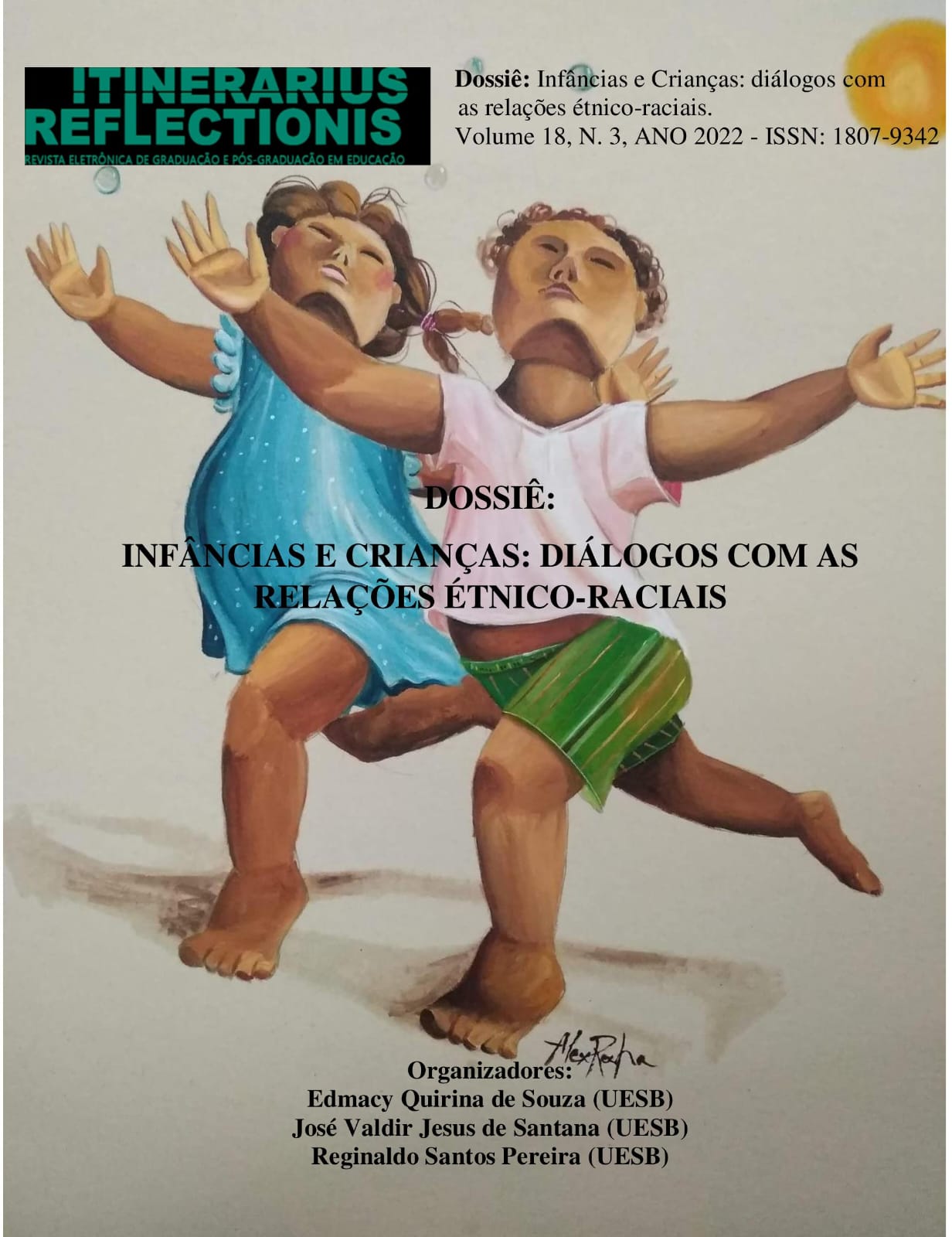Encrespadas, sim! gostamos deles bem assim!
pensando relações étnico-raciais em espaços educacionais e a literatura como afirmação de identidades negras.
DOI:
https://doi.org/10.5216/rir.v18i3.69718Abstract
Chimamanda Ngozi Adichie calls attention to the danger of a “single history” in his well-known speech given at TED Talk and released as a book in Brazil in 2009. In her work she claims the concept of a “single history” presented by our official narrative, the History about the Brazilian nation as one that contemplates a single perspective, the Eurocentric one. This would mean that the Brazilian Historic memories framed are those of the white colonizer and his descendants. Therefore, the non-white resistance and cultural influence present in the history of Brazil would be left out. As Michael Pollak (1989) suggests, these memories not officially framed are kept underground, that is, they exist among groups that are not in power. This does not mean that they cannot surface, occupying a place in the official discourses at opportune moments. This is the case of the black movements and their influence on the promulgation of law 10.639/03, which includes the teaching of African and Afro-Brazilian History in the national curriculum. Based on those reflections and on the concept of "Otherness" (Kilomba, 2019), this work starts by commenting the reading of reports of violence suffered by children in educational environments to finally analise three books with black characters released in Brazil of the 2010s: Meu Black é de Rainha (hooks, 2018), O cabelo de Cora (Câmara, 2013) and O mundo no black power de Tayó (Oliveira, 2013).
Downloads
Downloads
Published
How to Cite
Issue
Section
License
Os artigos encaminhados para publição na revista ITINERARIUS REFLECTIONIS deverão ser originais e não publicados ou propostos para tal fim em outra revista. Aceitam-se artigos escritos em Português, Espanhol e Inglês. A revista ITINERARIUS REFLECTIONIS se reserva o direito de efetuar, nos originais, alterações de ordem normativa, ortográfica e gramatical, com vistas a manter o padrão culto da língua, respeitando, porém, o estilo dos autores. As provas finais não serão enviadas aos autores. Texto sobre Copyright do conteúdo da Revista.


